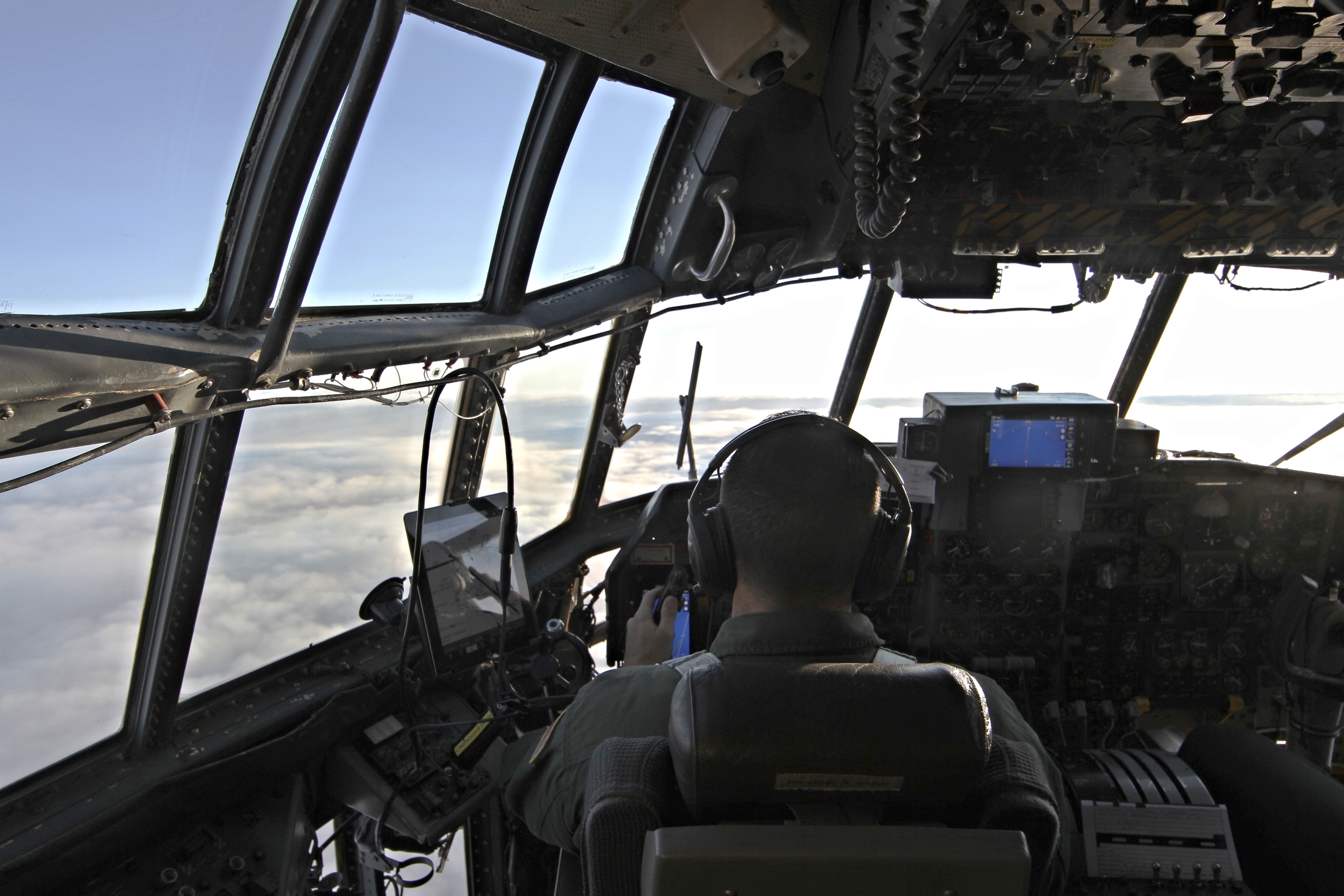The R/V Atlantis, captured from the flight deck of NASA's C130, 500 feet above. What this has to do with culture depends on whether you can see beyond the big machines and the endless water.
I see everything.
After all, I’m using a 14mm, ultra-wide angle lens, smartly compensated for distortion. But I’m really here to shoot video, and so when I sling my Canon behind me to work the controls on the Panasonic video camera in front, I take a moment to recompose the shot. I’m working in a real world Michael Crichton novel, complete with ancient airplanes, state of the art scientific hardware, and a colorful crowd of eclectic researchers and engineers out to reveal something never before recorded.
This trip is same as it ever was: I'm a one person, documentary filmmaking band, hustling to tell a story about research that otherwise would be unknown to the general public. I’m far from home, hair on fire, a full fledged part of the team. What’s the research project? It’s a mission called NAAMES, the North Atlantic Aerosols and Marine Ecosystem Study, and it’s designed to figure out vital mysteries about global climate change.
I'm not a scientist, and unless I’m suddenly swept up in some sort of cinematic drama where I need to escape intergalactic aliens, my day to day labors are decidedly more grounded. That said, I can't help but sing a note of pride just to be part of this and many missions like it. Since I started producing media, the world has changed in terms of its understanding of climate variability and the greater interconnectedness of global ecosystems. In just the last 20 years we’ve come a long way in our collective understanding of where we fit into a larger universe. I realize this makes it sound like I’m asserting I’m responsible for that sea change, but no: I’m fully aware that I’ve only played an infinitesimal part. But that’s where today’s riff on the creative process really begins.
This is the world just above the clouds.
Allow me to establish baseline facts: I generally spend my days working as an artist. I'm a writer, photographer, a filmmaker. That's how I repair things and that’s how I create things. I repair things by transforming information into feeling, into meaning. Sometimes those creations come after traveling with world-class scientists on exotic deployments. The goals of these campaigns are generally to gather information about the Earth. My job is to help make sense of what the scientists are doing so that millions of non-scientists can understand why the work matters enough to keep funding it. I like to think that beyond simply coming to understand why it's important, the general public may come to see an inherent beauty in the work too. I don't simply mean a beauty in the exotic locations or dramatic technology – – that's all true, of course – – but I mean a beauty in the precision and introspective elegance of the work itself.
Nonetheless, I have to regard that as a collateral benefit. I’m on the team, a fully participant member, the storyteller, the narrative translator, the guy who makes sense of what the technical experts are doing so that outsiders can get some clue about why it matters. Scientists shouldn't have to spend their days hustling stories to make what they do understood. I don't want my brain surgeon to explain everything he needs to do to repair a hematoma when I'm on the operating table! My brain surgeon has better things to do. The same goes for scientists engaged in important scientific pursuits.
It’s rare when someone can figure out how to do positive things in wholesale quantities. That’s not, however, license for the rest of us to sit on our behinds doing nothing. When I’m doing my best work, communicating ideas, conveying honest emotional resonance, creating ideas that didn’t exist until the moment I glued them together and shared them with the world, I’m confident that I’m part of the solution, that I’m actively saving the world from it’s own entropy. Yeah, yeah, someone is going to tell me that entropy is inevitable, even inescapable, that it’s going to pull everything down no matter what I do. I’m not going to disagree.
But see? That’s science. Science is an endless process. It builds on itself. Just like life, science means nothing if the fruits of its efforts aren’t shared with others. I don’t do science. I communicate things, and that means I help people think about things that might otherwise have gone unnoticed. My job is to fly in the face of entropy. My job is to synthesize mountains of information into gleaming jewels of meaning that didn’t exist before I got involved. My job is to push entropy off our collective backs, if only for a little while. My job is to contribute something to the larger culture that it didn’t have before I condensed it into meaning.
That’s what saving the world looks like.


